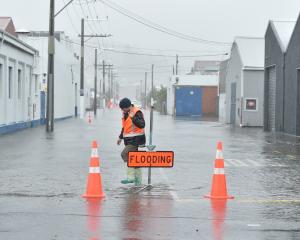
This claim was lodged with the Waitangi Tribunal in 1993. Claimants assert that Māori women’s status, mana, leadership and authority was reduced by colonial institutions and laws, Crown policies and actions.
It is hard to believe that 30 years have passed since the claim was lodged and that the hearing of evidence for the first phase of the claim only began in February 2021.
As a Kāi Tahu historian who researches Māori women’s history and the impact of colonialism on Māori whānau and communities, I’m looking forward to seeing what will emerge from the claim, not just in terms of its recommendations, but also the research it produces. Research reports that underpin tribunal claims often challenge comfortable narratives about our past. I think the Mana Wāhine inquiry will have a similar impact.
It’s a significant claim because it is the first to centre Māori women’s perspectives, histories and experiences. Doing so is radical. Why? Because our history books don’t really do justice to Māori women’s lives. Māori history is replete with illustrious and influential women of mana, but it’s rare for such women to appear in our histories.
One such woman was Meri Te Tai Mangakāhia, the Māori suffragist who supported the Pākehā women’s movement for the right to vote. She also fought for Māori women to have a voice and voting rights in the Paremata Māori (Māori Parliament). Many readers are likely to be aware of Dame Whina Cooper, leader of the 1975 Māori Land March. Have you heard of Makereti Papakura? She was the first Māori woman to attend Oxford University, enrolling in 1926.

I didn’t encounter stories about these women of mana or any others like them when I was studying history at high school in the early 1990s. In fact, the lack of any New Zealand or Māori history on offer at my school led me to drop the subject in favour of geography. At least in geography we learnt something about local history through landscape transformations and there was some limited engagement with mana whenua.
It wasn’t until I started university, where I took an introductory New Zealand history paper, that I learnt about Whina Cooper. That seems remarkable to me now. I started university in 1995, in the middle of a transformative decade for New Zealand history. This was when the Ngāi Tahu claim was before the Waitangi Tribunal and settlements were in the process of being negotiated. Treaty settlement processes put history at the centre of public and political debate.
Although at the time Māori history was being debated in fraught and divisive ways, Māori historians were making their voices heard. Ranginui Walker’s 1990 book Ka Whawhai Tonu Matou exemplifies the era. It remains a favourite book of mine and is still one of the outstanding books on Māori history ever produced in this country. As a student in the 1990s, it felt like Māori-led scholarship was on the rise and Māori history was making waves.
Although I now feel lucky to have studied at university when I did, I didn’t find it comfortable. Going to uni was a big step because it was an unknown. It was also a big step because I was the first in my family to attend. I was very aware that attending university was not just about me, but it was a stepping-stone to opportunity for the wider whānau.
Both my parents had left school at 14. My father was a freezing worker but lost his job in the late 1980s. He was a casualty of the massive economic upheavals of that era. With three children to look after, and with limited job options, my parents relied on benefits to get by. It is no wonder they valued a university education.
More significantly, they gave me the freedom to explore. As far as they were concerned, a university education was valuable in itself and I could study whatever I wanted. I’m grateful to them for that.
As a historian I’ve always got an eye on the future. Implementation of the Aotearoa New Zealand’s histories curriculum from this year means that hopefully more people will come to university knowing about Dame Whina Cooper, unlike me in 1995.
I hope they will also have a much wider appreciation of why knowing our history matters.
In time, I also hope our histories better reflect the contribution Māori women have made to Aotearoa. The Mana Wāhine Kaupapa Inquiry is laying the foundation for better, and more inclusive histories, ensuring that Māori women take their rightful place at the centre of Aotearoa’s story.
Let’s hope it doesn’t take another 30 years to get to that point.












